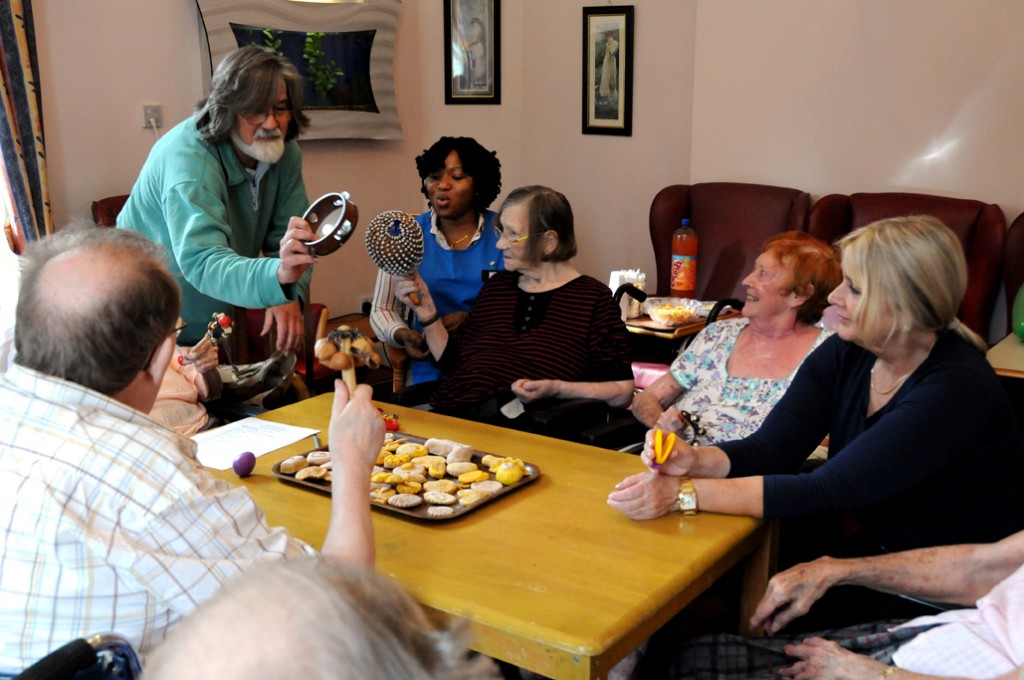
By 2025 there will be one million people with dementia in the UK, according to the Alzheimer’s Society; a project I reported on today for the Guardian online is proving the impact of arts-based therapy on people with the condition.
Take Eddie (not his real name). When he first met arts practitioner Jill, from London-based arts group Age Exchange, he was withdrawn and uncommunicative.
Eyes downcast, head bowed, hands clasped and legs crossed; Eddie, an introverted wheelchair user, had been in a dementia care home for a decade when he began sessions Jill.
Over six weekly reminiscence arts sessions – work that explores memories using creative activity – Jill noticed how Eddie became “awake, sitting upright in his wheelchair, trying to talk, being better at regulating his mood and behaviour … He felt safe enough to allow himself to express some of these stored up energies and feelings through movement and making sounds which freed him and allowed him to start opening up and connecting with people.”
A simple gesture after the final session – previously unimaginable – reflected the transformation. Jill recalls: “I was very touched as we said goodbye; he extended his right hand towards me, I took it and we shook hands.”
My piece today highlights the specialist practice of reminiscence arts; Eddie was among 200 older people involved in research into the method in Lambeth and Southwark, evaluated by experts at Royal Holloway, University of London. You can read the rest of the piece on the Guardian’s social care network.
